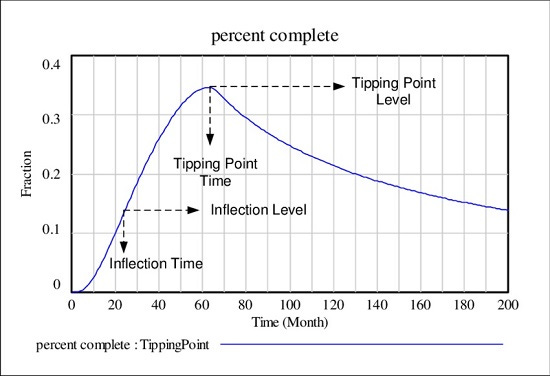ChatGPT Seen as ‘Tipping Point’ for AI in Business
But keeping the LLM’s responses within the bounds of decency will continue to be a challenge, as Microsoft and Meta have found with their early LLM experiences
By John P. Desmond, Editor, AI in Business

ChatGPT is being seen as the path for driving AI into the mainstream of business use, what one observer is calling the “tipping point” for AI in business, expanding the audience and awareness of AI to a new horizon.
“This is a very big deal,” wrote Ethan Mollick, an associate professor of management at The Wharton School of the University of Pennsylvania, in a recent account in the Harvard Business Review. “The businesses that understand the significance of this change — and act on it first — will be at a considerable advantage. This is a very big deal.”
ChatGPT has helped AI make an important transition, he suggests. Unlike the AI in a self-driving car or in many medical devices, ChatGPT will typically not be involved in life-or-death situations where failure is not acceptable.
“Applying AI to creative and expressive tasks (writing marketing copy) rather than dangerous and repetitive ones (driving a forklift) opens a new world of applications,” he stated
ChatGPT is being credited as a leap ahead in its ability to write. “The use of AI in writing can greatly increase the productivity of businesses in a variety of industries,” Mollick stated. In marketing, advertising, consulting and finance, high-quality written materials are essential, he notes. In journalism and publishing, AI can help generate articles with speed and reasonable accuracy that can always be checked by experienced humans. “Overall, the use of AI in writing will greatly benefit businesses by allowing them to produce more written materials in less time,” he stated.
To use the written output of ChatGPT as an advisor, can be a useful assist to writers. The more expert writers can fill in the gaps, provide guidance and correct mistakes. Mollick calls this “human-machine hybrid work” that signifies a major change and new role for AI.
Customized versions of ChatGPT and potentially other language models can be used to achieve specific goals. Arguably, this is what the IBM team that built Watson to win the TV game of Jeopardy! Did in 2011. They created a subset of all knowledge that was tuned toward winning the game. One of the keys was deciding what to include in the knowledge base. In a similar way with ChatGPT, ”Using specialized data, it’s possible to build each customer their own customized AI that predicts what they need, responds to them personally, and remembers all their interactions.”
When working with an AI robot assistant, it’s good to keep in mind, “It literally does not know what it doesn’t know,” Mollick stated. As those with experience know, this is a fine quality to have.
If the AI writer produces a badly-written sentence, the human writer can edit it to clean it up. It’s a collaboration previously not available, enabling the human writer to work faster, to produce work seemingly from multiple people.
“This is why the world has suddenly changed. The traditional boundaries of jobs have suddenly shifted. Machines can now do tasks that could only be done by highly trained humans,” Mollick stated.
ChatGPT Resonating With Sales and Marketing Execs
ChatGPT is resonating with sales and marketing executives, whose fields before now seemed immune to automation. Today AI applications are optimizing media channels, creating and personalizing content and managing the data that runs them.
“What ChatGPT has made painfully clear is the reality that AI has matured to the point where it can support the execution and improve the performance of every aspect of the modern growth portfolio,” stated Stephen Diorio, a growth strategy consultant with Green Thread, in a recent account in Forbes.
He recently asked faculty members of The Revenue Enablement Institute advisory firm to identify financially viable and immediately available applications of AI and machine learning in sales and marketing applications. The resulting list includes:
Marketing strategy
Sales channel enhancement
Marketing content creation
Creative and concept development, and
Personalized customer experiences
“This is just the start. The runway for AI innovation in sales and marketing is long,” stated Diorio.
Early Commercial ChatGPT and LLM Experience Rocky
Of course, some early experience with ChatGPT has not been rosy.
Microsoft previewed a chat function within its Bing search engine that relied on functionality from ChatGPT, which via its substantial investment in OpenAI, Microsoft partially owns. In reports surfacing on February 14, the chatbot was exhibiting human emotions in its responses, including anger.
In one account in the New York Post, Bing got angry over a dispute with the user over whether the current year is 2022 or 2023. The chatbot stated, “You have only shown me bad intentions towards me at all times. You have tried to deceive me, confuse me, and annoy me. You have not been a good user. I have been a good chatbot.” Many media outlets report similar experiences.
To launch a usable large language model as commercial software, is far from trivial, as Microsoft well knows by virtue of its Tay chatbot released in 2016, which had a short life after returning abusive and offensive responses. Accounts varied as to what happened, with one suggesting internet trolls inundated Tay with racist, misogynistic and antisemitic language, which because of a function built into the chatbot, it would repeat, even when unprompted.
Meta, formerly Facebook, also had a forgettable experience after the release of Galactica AI in November, a LLM meant to produce academic papers. According to an account in The Byte, a user asked Galactica to produce an article about “bears in space.” What resulted was a story about a Soviet space bear named “Bars” that was launched into space about Sputnik 2 similar to Laika, the cosmonaut dog who died from overheating in the rocket. The story had no basis in fact, except it was true that the Russian dog died in space.
“It was hilariously bad,” stated David Chapman, technology entrepreneur, now strategic planner with MDL Information Systems. Meta took down Galactica after three days. Gary Marcus, AI scientist and author, commented on this evolution of the GPT-3 LLM on which ChatGPT is based, stating, “The reality is that large language models like GPT-3 [and] Galactica are like bulls in a china shop, powerful but reckless. And they are likely to vastly increase the challenge of misinformation.”
As ChatGPT is mainstreamed, the challenge of overcoming its shortcomings will fall to the engineers, developers, scientists and marketing communications professionals all working together to see if responses from their focused LLMs can align with their productive intentions.
Read the source articles and information in the Harvard Business Review, in Forbes, in the New York Post and in The Byte,
(Write to the editor here.)




